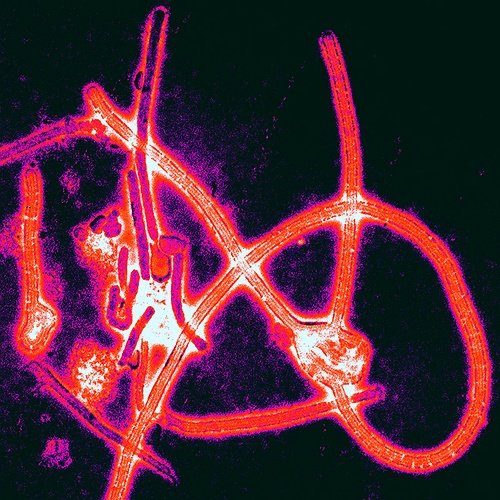New York City, NY - October 24, 2014 - A hospitalized medical aid worker who volunteered in Guinea, one of the three West African nations experiencing an Ebola epidemic, and since returned to the United States has tested positive for Ebola according to the New York City Health Department laboratory, which is part of the Laboratory Response Network overseen by the Centers for Disease Control and Prevention.
The patient has been notified of the test results and remains in isolation. The patient is currently at Bellevue Hospital in New York City. Bellevue Hospital is one of eight New York State hospitals that Governor Cuomo has designated to treat Ebola patients. A specially trained CDC team determined earlier this week that the hospital has been trained in proper protocols and is well prepared to treat Ebola patients.
Confirmation testing at the Centers for Disease Control and Prevention's laboratory will be done. The healthcare worker had returned through JFK Airport on Oct. 17 and participated in the enhanced screening for all returning travelers from these countries. He went through multiple layers of screening and did not have a fever or other symptoms of illness. The patient reported a fever to local health officials for the first time today. The patient was transported by a specially trained HAZ TAC unit wearing Personal Protective Equipment (PPE) to Bellevue. The New York City Health Department has interviewed the patient regarding close contacts and activities.
CDC is in close communications with the New York City Health Department and Bellevue Hospital, and is providing technical assistance and resources. Three members of CDC's Ebola Response Team will arrive in New York City tonight. This team is deployed when an Ebola case is identified in the United States, or when health officials have a very strong suspicion that a patient has Ebola pending lab results.
In addition, CDC already had a team of Ebola experts in New York City who can offer immediate additional support. The CDC experts were in New York City this week assessing hospital readiness to receive Ebola patients, including Bellevue hospital. CDC's Ebola hospital assessment teams are designed to make sure that hospitals that have volunteered to take Ebola patients are Ebola ready.
These teams assess a facility's infection control readiness and to determine if there are gaps in infection control readiness. They support a facility in developing a comprehensive infection control plan. The principle is to be ready for the patient coming in the front door and everything that happens through the patient's stay in the hospital. CDC's team is a multidisciplinary team of experts. It includes infection control practice specialists, personal protective equipment specialists, worker safety experts, clinical care and diagnostics experts, and laboratory processes experts. New York City and New York State have designated Bellevue as an Ebola treatment hospital. The CDC team, which had completed its assessment of Bellevue, found the facility to be well prepared to care for a patient with Ebola.
Ebola is spread through direct contact with bodily fluids of a sick person or exposure to objects such as needles that have been contaminated. The illness has an average 8-10 day incubation period (although it could be from 2 to 21 days). CDC recommends monitoring exposed people for symptoms a complete 21 days.
Confirmatory CDC laboratory tests will be shared when these tests are done, following appropriate patient notification.
Post-Arrival Monitoring for Travelers
Yesterday CDC named New York as one of six states who will begin active post-arrival monitoring of travelers whose travel originates in Liberia, Sierra Leone, or Guinea and arrive at one of the five airports in the United States doing enhanced screening. Active post-arrival monitoring means that travelers without febrile illness or symptoms consistent with Ebola will be followed up daily by state and local health departments for 21 days from the date of their departure from West Africa.
Six states (New York, Pennsylvania, Maryland, Virginia, New Jersey, and Georgia), where approximately 70% of incoming travelers are headed, have already taken steps to plan and implement active post-arrival monitoring which will begin on Monday, October 27. Remaining states will begin their programs in coming days.
Specifically, state and local authorities will require travelers to report the following information daily: their temperature and the presence or absence of other Ebola symptoms such as headache, joint and muscle aches, weakness, diarrhea, vomiting, stomach pain, lack of appetite, or abnormal bleeding; and their intent to travel in-state or out-of-state. In the event a traveler does not report in, state or local public health officials will take immediate steps to locate the individual to ensure that active monitoring continues on a daily basis.
CDC is providing assistance with active post-arrival monitoring to state and local health departments, including information on travelers arriving in their states, and upon request, technical support, consultation and funding.
For more information on ebola, visit our website.
[Source: CDC]
Pictured: "Ebola." Photo by Thomas W. Geisbert, via Wikimedia Commons. CC-BY-2.5.










